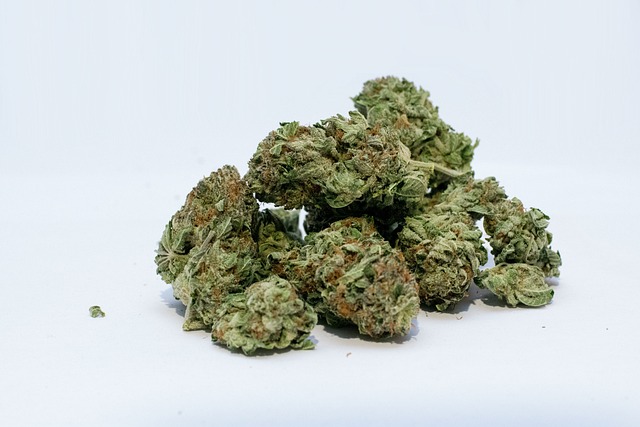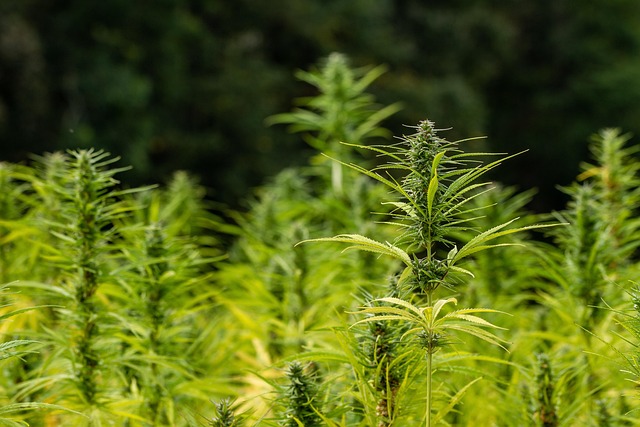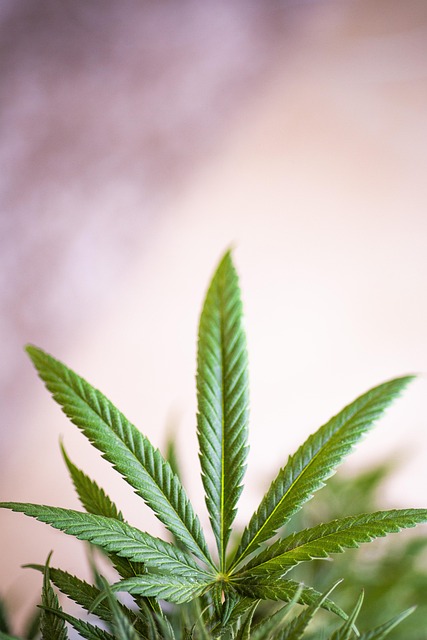Revolutionize Pet Health with Vet-Approved THC Gummies – Free Shipping Today!

Tired of seeing your pet struggle with pain, anxiety, and medication side effects? Say hello to our…….
In today’s evolving landscape, the world of cannabis products has witnessed a remarkable transformation, with an increasing trend towards innovative and diverse consumption methods. Among these, THC gummies have emerged as a popular and intriguing option, capturing the attention of both enthusiasts and casual consumers alike. This article delves into the realm of THC gummies, exploring their existence, impact, and significance in the global cannabis market. By examining various facets, from historical roots to future prospects, readers will gain an insightful understanding of this compelling aspect of cannabis culture.
THC gummies, short for Tetrahydrocannabinol (THC) gummies, represent a type of edible cannabis product designed to deliver a discreet and palatable way to consume THC, the primary psychoactive compound found in the cannabis plant (Cannabis sativa). These gummies are essentially candy or jelly-like treats infused with THC oil, offering a unique twist on traditional edibles.
The concept of THC gummies is relatively new, arising from advancements in cannabis extraction and processing technologies. By infusing THC into gelatin or pectin-based products, manufacturers create a tasty and easily consumable form of cannabis. This method ensures precise dosage control, as each gummy can be crafted to deliver a specific amount of THC, catering to users’ preferences and needs.
Historically, cannabis edibles have been associated with ancient cultures where the entire plant was consumed through cooking and brewing methods. However, modern THC gummies represent a more refined approach, leveraging scientific advancements in cannabinoid extraction and formulation.
The global impact of THC gummies is profound, reflecting shifting attitudes towards cannabis and its therapeutic potential. As the legal status of cannabis varies widely across countries, these gummies have gained popularity in regions where recreational or medicinal use is permitted.
North America, particularly the United States, has been at the forefront of cannabis legalization and innovation. In states like Colorado, Washington, and California, THC gummies have become a staple in the cannabis market. Here, they are often perceived as a more sophisticated alternative to traditional smoking methods, appealing to a broader demographic, including younger consumers.
In Europe, countries such as Germany, the Netherlands, and the United Kingdom have embraced medical cannabis, leading to increased acceptance of THC-infused products like gummies. Many European manufacturers focus on creating high-quality, organic THC gummies, catering to health-conscious consumers.
Asia is witnessing a surge in interest regarding cannabis wellness, with countries like Israel and Japan leading the way in cannabis research and legalization. THC gummies are gaining popularity as a convenient and discrete way to incorporate cannabis into daily routines, especially for those seeking potential therapeutic benefits.
The economic aspects of THC gummies are significant, reflecting a burgeoning industry with substantial growth potential.
According to recent reports, the global cannabis market is projected to reach a staggering $73.6 billion by 2027, growing at a CAGR of 24.8% from 2020 to 2027 (Grand View Research). Within this market, edibles, including THC gummies, are expected to experience remarkable growth due to their rising popularity and perceived health benefits.
The cannabis industry has attracted significant investment, with a focus on vertically integrated companies capable of controlling the entire supply chain, from cultivation to distribution. Investors are drawn to THC gummies and other edibles for their high margin appeal and the potential to tap into diverse consumer preferences.
Regulatory frameworks play a crucial role in shaping the economic landscape of THC gummies. Legalization and clarification of regulations have led to increased investment, job creation, and tax revenue generation in regions where cannabis is legalized. For instance, legal medical cannabis markets in Canada have contributed substantially to national economic growth.
Technological innovations have played a pivotal role in the development and popularity of THC gummies, pushing the boundaries of cannabis delivery methods.
Advancements in cannabis extraction technologies have enabled precise isolation of THC from other plant compounds. Techniques like solvent extraction, CO2 extraction, and supercritical CO2 extraction ensure high-purity THC oil, which is then infused into gummy bases. These methods allow for consistent product quality and potency.
Modern THC gummies offer a wide array of flavors, textures, and shapes, thanks to advancements in food science and formulation techniques. Manufacturers can create gourmet-quality products that cater to diverse tastes, making cannabis consumption more enjoyable and appealing to mainstream consumers.
The digital revolution has transformed how THC gummies are marketed and sold. Online platforms provide easy access to product information, customer reviews, and educational content, influencing consumer choices. E-commerce enables direct-to-consumer sales, bypassing traditional retail channels, and offering convenience and discretion.
The policy and regulatory landscape surrounding THC gummies is complex and varies widely across jurisdictions, reflecting the ongoing debate around cannabis legalization and classification.
THC gummies are legal in certain countries and regions, including Canada, Uruguay, and parts of the United States (specifically, states that have legalized recreational or medicinal cannabis). In these areas, they are regulated by specific laws and guidelines that govern their production, sale, and consumption.
Regulatory bodies ensure product safety, quality, and labeling accuracy. They set limits for THC content, establish packaging requirements, and monitor the marketing of cannabis products, including gummies. For example, Health Canada oversees the legal cannabis market, implementing strict regulations to protect consumers.
Internationally, the United Nations Convention on Psychotropic Substances (1961) controls the production and distribution of cannabis. However, many countries have diverged from this convention, leading to varying levels of regulation and legalization worldwide. This complexity presents challenges for manufacturers and consumers navigating global markets.
Despite their growing popularity, THC gummies face several challenges and criticisms that require addressing for the industry’s sustainable growth.
One of the primary concerns with THC gummies is the variability in potency and dosage. Since these products are not standardized, consumers may inadvertently consume excessive amounts, leading to potential adverse effects. Standardization and clear labeling are essential to ensure consumer safety.
Ensuring product quality and safety is paramount. Inexperienced manufacturers or those operating outside the law may produce subpar or unsafe THC gummies. Regulatory oversight, third-party testing, and adherence to good manufacturing practices (GMP) are crucial to maintaining product integrity.
Despite growing acceptance, cannabis and its products still carry social and cultural stigmas in many places. THC gummies, as a relatively new concept, may face misconceptions regarding their effects and potential risks, particularly among older demographics or those unfamiliar with cannabis. Education and awareness campaigns can help dispel these myths.
In some regions, access to legal THC gummies is limited, and they may be priced out of reach for certain consumers. Ensuring affordability and accessibility, especially in medical contexts, is essential to promoting responsible use and equal access to potential therapeutic benefits.
Canada’s legalization of recreational cannabis in 2018 had a profound impact on the THC gummy market. Companies like Canopy Growth Corporation (now Tilray) and Aurora Cannabis entered the edibles segment, offering diverse THC gummy products. The legal framework provided clear guidelines for product safety and quality, fostering consumer confidence and market growth.
Israel is renowned for its medical cannabis research, and its THC gummy products have gained international recognition. Companies like Medigrow specialize in creating high-quality, pharmaceutical-grade edibles, catering to patients with diverse medical conditions. These gummies are carefully formulated to deliver specific dosages, ensuring therapeutic efficacy while minimizing side effects.
In California, THC gummies have become a staple in the diverse cannabis market. Companies like GVS Brands offer a wide range of flavors and potencies to cater to varying consumer preferences. Their success lies in understanding local tastes and adapting products accordingly, ensuring high demand and customer satisfaction.
The future outlook for THC gummies is promising, with several growth areas and emerging trends shaping the industry’s trajectory.
As more countries and states embrace cannabis legalization, the market for THC gummies is expected to expand globally. This expansion will open new opportunities for manufacturers and retailers while requiring robust regulatory frameworks to ensure product safety and quality.
Consumers are demanding personalized cannabis experiences, leading to a trend towards customized THC gummy products. This could involve tailored potencies, flavors, and ingredients to suit individual preferences and therapeutic needs. Advanced packaging technologies will play a role in offering convenient, portion-controlled options.
There is a growing interest in integrating cannabis into functional foods and wellness products. THC gummies may evolve to include additional compounds like CBD (Cannabidiol) or other terpenes, offering potential therapeutic benefits beyond psychoactive effects. This trend aligns with the rising popularity of cannabis as a wellness tool.
Digital technologies will continue to shape the THC gummy industry, from online sales channels to interactive product information. Augmented reality (AR) and virtual reality (VR) experiences could revolutionize how consumers learn about and interact with these products. Blockchain technology may also be leveraged for supply chain transparency and traceability.
The world of THC gummies is a vibrant tapestry woven with threads of cultural evolution, scientific innovation, and entrepreneurial spirit. As this article has explored, THC gummies have emerged as a significant aspect of the global cannabis landscape, offering consumers a diverse and palatable way to engage with cannabis.
Despite challenges related to regulation, quality control, and public perception, the future prospects for THC gummies remain promising. With increasing legalization, advancements in technology, and growing acceptance of cannabis as a therapeutic tool, these edibles are poised to play a pivotal role in shaping the industry’s growth and evolution.
As we navigate this dynamic landscape, continued research, education, and responsible consumption practices will be essential in unlocking the full potential of THC gummies while ensuring their positive impact on individuals and communities worldwide.
Q: Are THC gummies legal?
A: The legality of THC gummies varies globally. In some countries and states, they are fully legalized for recreational or medicinal use. However, in other regions, they may be restricted or illegal due to varying cannabis laws. Always check local regulations to ensure compliance.
Q: What is the difference between THC gummies and other cannabis edibles?
A: While all THC gummies are cannabis edibles, not all edibles contain THC. Other popular options include CBD gummies and hybrid edibles that combine THC with CBD or other cannabinoids. THC gummies differentiate themselves through their psychoactive effects, derived exclusively from Tetrahydrocannabinol.
Q: How much THC should I consume in a gummy?
A: Dosage is critical for safe and effective use. THC gummies typically come in various potencies, ranging from low (5-10mg THC) to high (50mg+ THC). Start with lower doses and gradually increase as needed, allowing your body to adjust. Always consult product labels and consider consulting a healthcare professional for personalized guidance.
Q: Are THC gummies safe for everyone?
A: Like any cannabis product, THC gummies may not be suitable for everyone. Pregnant or breastfeeding women, individuals with certain medical conditions, and those taking medications should exercise caution and consult healthcare providers before consuming THC gummies. Additionally, driving or operating machinery while under the influence of THC is illegal and unsafe.
Q: How do I store THC gummies to maintain quality?
A: Store THC gummies in a cool, dry place away from direct sunlight. Keep them in their original packaging to protect against moisture and humidity. Avoid exposing them to extreme temperatures or leaving them unsecured, as this can affect potency and taste. Proper storage ensures the best quality and freshness.

Tired of seeing your pet struggle with pain, anxiety, and medication side effects? Say hello to our…….

Are you tired of the constant struggle with chronic pain and its impact on your daily life? Say good…….

Are you looking for a convenient and tasty way to experience the potential benefits of THCA? Our top…….

Tired of harsh chemicals and their questionable claims? Say goodbye to THC gummies with our all-natu…….

Tired of dealing with the worries and stressors of daily life? Our THC-free Hemp Oil Blends offer a…….